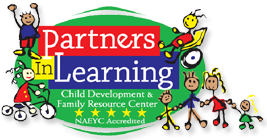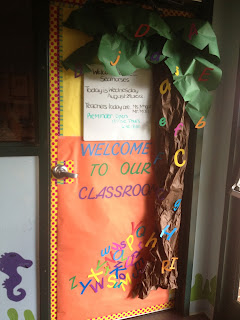Partners In Service
Love cannot remain by itself – it has no meaning. Love has to be put into action, and that action is service. -Mother Teresa
In the above photo, this NCPrek is volunteering on her child's first day of school.
Whether your children are just starting preschool or entering the final
year of high school, there are many good reasons for parents to
volunteer at school. It's a great way to show your kids that you take an
interest in their education, and it sends a positive message that you
consider school a worthwhile cause.
Not only will the school reap the benefits of your involvement — you
will, too. By interacting with teachers, administrators, and other
parents on a regular basis, you'll gain a firsthand understanding of
your child's daily activities. You'll also tap into trends and fads of
school life that can help you communicate with your kids as they grow
and change.
We truly engage our families in volunteering. They rack up over 1000 volunteer hours each year. Volunteers are the heartbeat of our organization and
actively engage in many of the activities that make a real difference in
children’s lives.
Volunteering provides the opportunity for you to contribute towards the building of an inclusive community and the well being of our society. Parents talents and skills can be matched with your work preference to obtain a role that satisfies you and best fulfills the mission of Partners In Learning.
Helping others feels good and helps you feels good and helps you feel good about yourself.
Volunteers are always welcome and always needed!
Volunteering provides the opportunity for you to contribute towards the building of an inclusive community and the well being of our society. Parents talents and skills can be matched with your work preference to obtain a role that satisfies you and best fulfills the mission of Partners In Learning.
Helping others feels good and helps you feels good and helps you feel good about yourself.
Volunteers are always welcome and always needed!
Norma Honeycutt, Executive Director


































